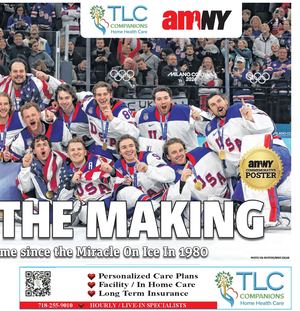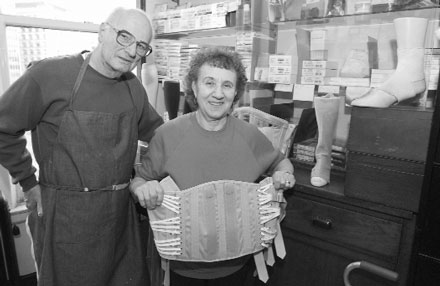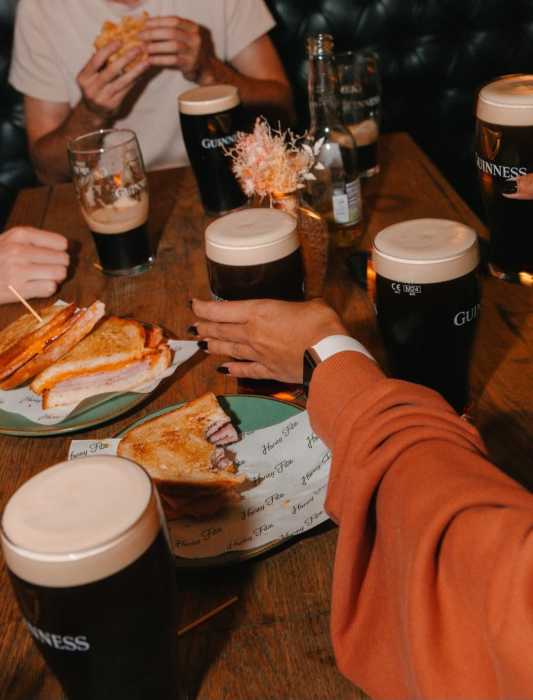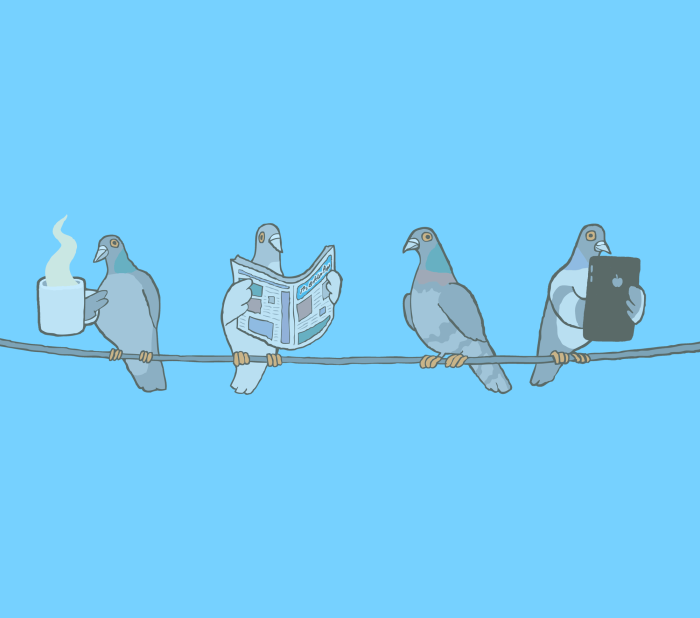By Deborah Lynn Blumberg
In a small office overlooking City Hall Park in Lower Manhattan, Joe Reiff pounds out strips of leather with a heavy metal anvil and uses a 70-year-old Singer sewing machine to custom make back braces, and foam and leather hernia belts. His wife, Mildred, answers the phones and balances the books to the sounds of show tunes in the adjoining room in the office on the corner of Park Row and Beekman St.
The Reiffs, both in their mid-70s, are the owners and sole employees of S.T. Einhorn & Sons, Inc., a manufacturer of surgical and orthopedic appliances that for the past 78 years has sold handmade steel braces, hernia belts and stockings for varicose veins to aging customers from the five boroughs. The custom-made products the Reiffs produce are unique, as many similar businesses now sell only ready-made devices, they say. But the store’s days may be numbered. Declining business following the September 11, 2001 terrorist attacks, tight restrictions from H.M.O.’s and a changing neighborhood have all contributed to the store’s 50 percent drop in profits over the past few years.
“Everything has changed since the H.M.O.’s came into power,” Mildred said from the company’s second-floor office at 1 Beekman St. “This is a dying trade, and it’s sad.” Health maintenance organizations designate approved suppliers in each borough of New York, and to be covered by insurance, patients can go only to suppliers covered under their plan.
One resident of Southbridge Towers, a nearby apartment complex where many of Einhorn’s customers live, was sent Uptown for a hernia truss—a special belt used before surgery to prevent hernias from enlarging—and his condition worsened because of the trip,
Mildred said. “It’s just wrong. If someone has a good product and a good price, the customers should be allowed to go there.”
Many of the customers who do depend on Einhorn for their medical supplies have been coming to the store for years. Manila folders from a creaky metal filing cabinet bulge with customer orders and measurements for their devices. One of the oldest files is from 1951, the year after Mildred joined the company on the recommendation of two cousins who already worked for then owner Teddy Einhorn, the son of Sam Einhorn, the company’s original founder who opened the store in 1926. The Reiffs bought the company from Teddy when he retired in 1972, but kept the name because it was so well known Downtown.
Other patrons who have retired to Florida still call for orders. The Reiffs remember customers’ special preferences by taping into the files small samples of the type of foam used in crafting the truss. “One customer who called said that we have to let her know if we go out of business, because no one makes these [trusses] anymore.”
Joe uses steel springs available only from Germany, fabric and foam to craft the hernia belts. Each belt takes two-to-three hours to make. In a small fitting room with an old metal table, Joe and Mildred fit customers, many of whom have found Einhorn through word of mouth and recommendations from area pharmacies. “Everybody knows us around here,” said Mildred. “People go to the drugstore looking for a product and they tell them to go to Einhorn.”
Both Joe and Mildred grew up in the New York area, Mildred in the Bronx and Joe in New Jersey and Richmond Hill. Joe joined the company four years after Mildred and the two married several years later. Dressed in a denim apron and wearing thick black-rimmed glasses, Joe emerged briefly from the workshop full of reels of pink, blue and gray fabrics, and old sewing machines where he worked to finish a truss to ship out in the next few hours. “I was alone with him and had to teach him, so I took my time,” Mildred said with a sly smile. The two now live in Queens and take the bus to work together every day. “I’ll tell you my secret,” she said. “When I come to work, he’s my boss, and when I get home, I’m the boss.”
Years ago, the Reiffs were joined by other workers, two Haitian women who helped to sew the trusses and braces. Joe, who used to play baseball at Long Island University, knew the mitts he used were sewn in Haiti, so he called the local Haitian paper whose editor recommended the women. One has since passed away, but the other, who moved to Florida, often visits the store when in town. “They used to sing like songbirds,” Joe said.
What makes Einhorn different, the Reiffs said, is their close relationship with their customers, something that may be disappearing from the neighborhood in general, Mildred said, as more and more residential buildings are replacing small businesses in the area. “Nassau St. used to be a shopping hub, but now it’s dead here,” she said. “We need people working in these buildings so trade can come alive again.”
For the last six years, the Reiffs have worked in the Beekman St. office, Einhorn’s fifth Downtown location. They left their last location on 87 Nassau St. when developers converted the building into a condominium complex. Friends in the area had to close their engraving business when their building was converted into apartments, and across the park, the Woolworth Building used to house a host of businesses, but is now slated to become half residential. “And it’s the same with a lot of the buildings down here,” Mildred said. “The change has crept up slowly.”
Einhorn was also affected by the Sept. 11 attacks. Joe and Mildred watched from their window as the planes hit, and the aftermath of the crash filled their office with soot. Many of the doctors they used to work with had offices in the towers and relocated Uptown. “Since Sept. 11, we’ve lost a lot of business from the area,” Mildred said. “The patients don’t want to come Downtown.”
In Mildred’s section of the office, posters of back braces and stockings cover the walls. On her bulletin board, a picture of a crying baby with the caption “My truss is killing me” is posted alongside a photograph of the World Trade Center. Mildred flips open the wooden desk to reveal an old-fashioned green typewriter and reaches for the elastic brace she uses for her sore wrist. At noon, it’s almost closing time. Since business turned, the Reiffs cut down the store’s hours from 7 a.m. to 5 p.m., to 7 a.m. to 1 p.m.
“Joe and I feel the same way,” Mildred said. “To help someone and have them walk out feeling good, that’s why we want to be able to stay around. I’m here for today, and I pray for tomorrow.”
Reader Services



































